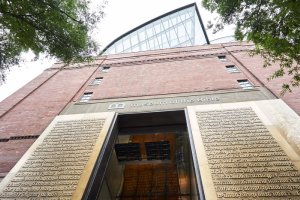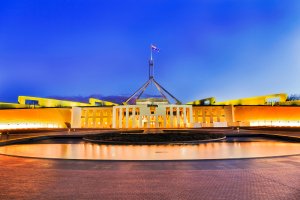The French government’s recent announcement of a parliamentary bill to combat religious practices deemed “contrary to the country’s republican values” is a constitutional minefield likely to worsen the problems the proposed law sets out to solve, according to a white paper issued by European scholars.

Coauthored by experts in the sociology of religion, new religious movements, religious liberty, international human rights and church-state relations, the paper revolves around provisions in the draft law promoted by President Emmanuel Macron to counter radical Islam in the aftermath of a string of terrorist attacks by Islamists on French soil in recent years.
The 30-page white paper, available through the website of the Center for Studies on New Religions (CESNUR), titled “‘Separatism,’ Religion and ‘Cults’: Religious Liberty Issues,” tackles a wide range of issues of great concern to religious and community leaders and the general public.
The December 9 proposed bill titled “Supporting Republican Principles” has been widely criticized as Islamophobic. It instantly triggered protests in Muslim countries from Turkey to Bangladesh, Kuwait, Saudi Arabia and Pakistan, even though the legislation does not directly mention the words “Islam” or “Islamism.”
“Eradicating the social roots of terrorism is a laudable purpose, and some provisions of the draft law make sense,” the authors said in an introduction to their paper. “But there are also serious problems.”
“First, the law is being proposed and publicized by some politicians and media with disturbing accents implying that only an ‘Islam des Lumières,’ an Enlightenment-style Islam, is acceptable in France, where all conservative Muslims, i.e., the majority of Muslims in France and Europe, are suspected of extremism if not terrorism,” the authors warned. Such an approach, they added, is likely to fuel extremism rather than contain it.
The draft law, scheduled to be debated by France’s National Assembly this month, attracted further controversy when a top official revealed that its targets are wider than Islamic radicalism, the paper points out.
Marlène Schiappa, French Minister Delegate in Charge of Citizenship, made that clear in an October 10 interview with Le Parisien: “We will use the same methods of action against sectarian groups as against radical Islamism,” she said, referring to minority religions that the French government calls “sects,” and which have long been discriminated against by the government.
One provision of the draft law likely to affect minority religions across the boards is Article 38, which calls for stricter controls over religious associations, including requiring religious organizations to declare foreign funding that exceeds 10,000 euros ($12,000).
“Ostensibly, its purpose is to limit the activities of Islamic radical organizations that are funded by citizens or foundations based in Saudi Arabia, the Gulf Emirates or Turkey,” writes Alessandro Amicarelli, coauthor of the paper, in a December 8 article in Bitter Winter, a human rights magazine edited by Massimo Introvigne, noted Italian sociologist and founder and managing director of the Turin-based CESNUR, who also coauthored the white paper.
“However, as is the case for the [draft] law in general, provisions targeting one specific religion would be unconstitutional and non-compliant with other basic legal principles,” points out Amicarelli, who specializes in international and human rights law as well as immigration and refugee law.
“To avoid this risk, these provisions are formulated in general terms,” he writes. “But precisely these general terms endanger hundreds of peaceful and law-abiding organizations (also including the peaceful organizations that constitute the vast majority of the Islamic groups).”
Article 38 is dangerous, says Amicarelli, because while Islamic fundamentalists overseas may have sophisticated ways to elude such a law, it would “threaten the very existence of hundreds of peaceful Islamic communities, Evangelical churches, new religious movements, and other religious entities that depend for their support on parent organizations or churches abroad.”
On December 9, the French Council of Ministers amended the draft law by deleting some of its most contentious and vaguely worded provisions pertaining to religious liberty, such as rescinding a complete ban on homeschooling; shutting down places of worship for sermons or distributing literature that fosters “discrimination” (other than “incitation to violence and hate”); and liquidating religious groups that apply “psychological pressures” on members or expose them to “acts against human dignity.”
The amendments, wrote Introvigne in Bitter Winter, “reflected the prevailing opinion of both French and international scholars of religion,” including the authors of the white paper.
The government sought the opinion of the French State Council, which received the text of the amended legislation on November 18, “with the ‘defense of Republican principles’ replacing in the title the controversial notion of a ‘fight against separatism.’”
“It seems difficult that the Parliament can ignore the clear remarks of the State Council, and the questions of constitutionality it raised,” Introvigne wrote. “On the other hand, an anti-cult lobby is highly active in France and may try to include again provisions aimed at restricting the religious freedom of the groups it condemns as ‘cults.’”
While the draft law poses a clear threat to religious liberty, “we also understand that France has its own peculiarities,” the paper noted, referring to laïcité, a principle aimed at keeping religion at arm’s length from the French state—and the state from religion.
“What was once called ‘communitarianism,’ and now ‘separatism,’ is in direct opposition to laïcité,” the paper says, adding: “It is the attempt by members of some religions to live ‘separately,’ giving their primary loyalty to their religious community rather than to the Republic. For the French political and cultural tradition, preserving laïcité means preserving the Republic itself.”
The authors of the white paper refer to the myriad ways in which religious groups, especially minority faiths, are investigated, intimidated and often restricted in their rights and activities. These will be subjects of subsequent blogs on ScientologyReligion.org.
________________
From its beginnings, the Church of Scientology has recognized that freedom of religion is a fundamental human right. In a world where conflicts are often traceable to intolerance of others’ religious beliefs and practices, the Church has, for more than 50 years, made the preservation of religious liberty an overriding concern.
The Church publishes this blog to help create a better understanding of the freedom of religion and belief and provide news on religious freedom and issues affecting this freedom around the world.
The Founder of the Scientology religion is L. Ron Hubbard and Mr. David Miscavige is the religion’s ecclesiastical leader. For more information, visit the Scientology website or the Scientology TV network.


